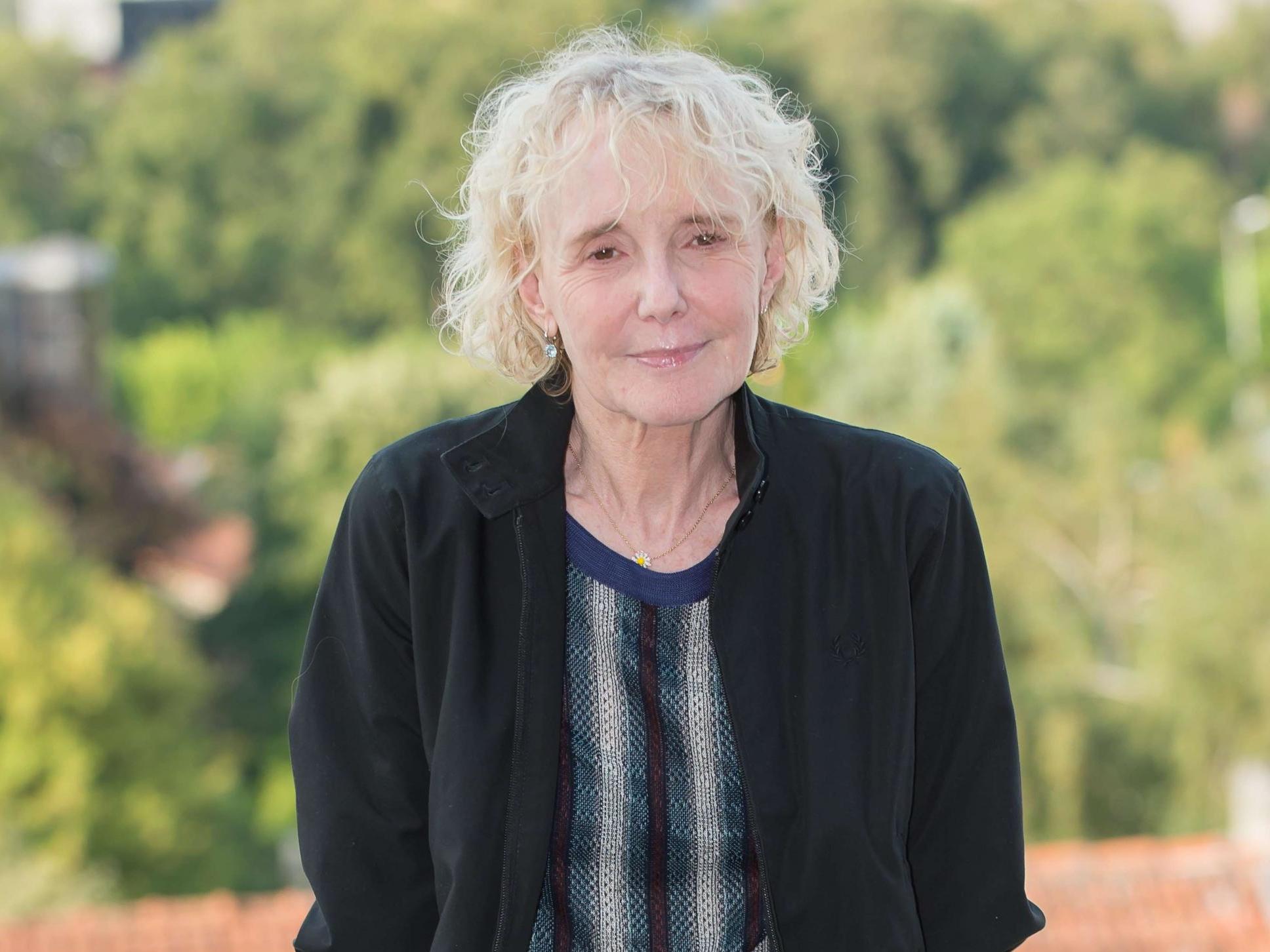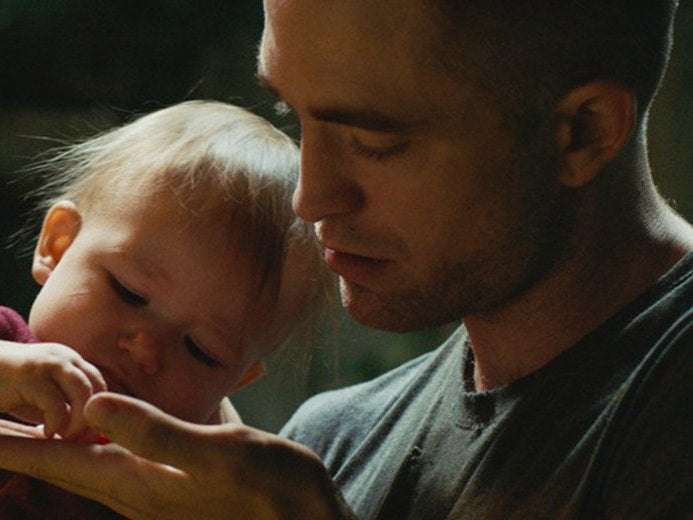The Independent's journalism is supported by our readers. When you purchase through links on our site, we may earn commission.
Barry Jenkins interviews High Life director Claire Denis: ‘I accept that I’m an inspiration’
The filmmaker behind ‘Moonlight’ and ‘If Beale Street Could Talk’ speaks to the French auteur about director anxiety and expectations

Claire Denis, the world’s greatest working filmmaker, is sitting on a couch drinking herbal tea. She is in New York promoting her new film, High Life, an emphatic allegory about infants, incarceration and intergalactic space travel starring Robert Pattinson as one of several young convicts conscripted to a mission to a black hole.
Denis, born in Paris but raised in west Africa by civil servant parents, is an auteur’s auteur, uncompromising in her vision and singular in aesthetic styling. Hers is a cinema of everyday rituals, personal histories and a knotty reckoning with the lingering effects of colonialist aggressions.
A longtime fan and student of her work, I spoke by Skype with Denis about anxiety, High Life and the keen ways in which she portrays the lives and souls of black folks on screen.
How are you, Claire?
I’m fine. Actually, I don’t know. I am a little bit tired, a little bit full of anxiety, and yet, I am happy to speak with you.
And I am happy to speak with you. The anxiety, I understand. The movie’s opening, right? I would imagine you get used to it.
Oh, no. It’s worse and worse.
Worse and worse?
Yeah, because there is a sort of innocence at the very beginning. At least I did that, you know? And what if I never do another one? Then little by little, it became people are expecting something. I think it’s worse, yes.
I was at the Toronto International Film Festival, where the film debuted, and I think there were expectations. People had heard this movie is crazy. But it wasn’t this very wild, far-out thing. It was just your work.
I think my movies have a certain tenderness, a certain humanity, and that’s what counts for me.
I would agree. It’s why I love your work. Whenever people say there’s tenderness in my work, I say thank you, Claire Denis.
Oh, come on. I mean, thank you, thank you for people to believe in making films with that content. I loved your last film [If Beale Street Could Talk].
Thank you very much. You said you were uncomfortable speaking in English, but I remember the first time I heard your voice, it was in English, and it had a very profound effect on me because you were so thoughtful in your answers.
I think I am also slow in my thoughts. I’m not fast, even in French.
Is it something that you’ve discovered through your work? Or is just the way you grew up? You have a very interesting background, and clearly it’s created a person who makes art in a way that’s very different than the way the rest of us make art.
I think so. Growing up in Africa at the end of the colonial era was so much for a child to grasp. I try to understand my parents, the people, the other white people, and I try to understand what it was to be watching this moment where freedom movements wanted the end of colony, you know?
It was very naive probably, but I thought, well, things are getting better. And my parents, especially my father, he was very optimistic, and he was so much for the freedom of Africa, I think it gave us a freedom to think, a freedom to be independent, not to be so French. But when I get to France when I was 13, 14, I realised I was completely different. I had been educated for a different life. I could not be like my cousin, like my friend, but maybe I felt unfit for so many things in France. And therefore, cinema became a reason to live and to express my feelings.
You mentioned the optimism of your father, because I think, especially in your work that’s set in Africa, there is this tension between the hope for what things could be and the reality of how things are. I would say, as a black filmmaker, my friends and I talk about the work you’ve made that’s set on the continent and how something feels very true about it. Part of that’s because you have personal experience there, but it just seems like you care, which is a very important thing for an artist.
Not only I care, but I knew, even when I was three, four years old, that something was unfair, that this situation was terrible. I knew there was something wrong in being masters among people. This gave me a sort of forever guilt.
You returned to France when you were 13, but you didn’t make your first film until you were, I think...
Thirty-nine.
I am the same age as you were when you made your first film, Chocolat. What happened between those years?
I had not a very easy youth. I got married. I ran away from home when I was 15. I did a lot of crazy things, but you know, ’68 Europe was a sort of vast change. Nothing would be the same ever, so we thought.
I became interested in photos. I met someone who told me maybe you should try to go to a cinema school. I spent there three years, and then I divorced. I had to find work, and the headmaster helped me to find a job, and that’s how I became an assistant director. I adored that. People always ask me, were you frustrated to be an assistant? No, the opposite. It was great. I wanted so much to be useful. And once or twice, with Jacques Rivette, the French director, he urged me to do my own thing. And in the end, I was with Wim Wenders doing Paris, Texas, and suddenly, I knew my first film was going to be an evocation of my youth in Africa. Because I thought: If I don’t start with Chocolat, I will be always unbalanced. Something I have to say, it’s me, and that’s it.
Chocolat was the experience of having to express yourself?
Yeah, but I was not expressing myself in the first person. I was trying to express a group of persons, black and white, living under the same roof. For good or bad reasons, I wanted to speak about that guilt, and that moment where this young domestic decides it was over for him to be serving white people. I remember very well some friend of Isaach de Bankole [a star of the film] told him, “Oh, Isaach, you’re not going to play a domestic of white people, it’s so humiliating.” And I said, “No, it’s the main part.”

There have been quite a few actors, black actors, in France, in Paris in particular, who have come to fame through your work, Isaach being one – Alex Descas being another. Talk about working with those black men. I assume that feels no different than working with anyone else, but it is a very particular thing because, in French cinema, those actors don’t typically get roles that are very central.
No. Isaach is in New York now. In Paris, I watched [the art exhibition Black Models: From Gericault to Matisse], with Alex. I told him it’s strange, I think it should be called the absence of black, not the presence, because it’s so few.
When I did 35 Shots of Rum, I remember, some people were genuinely saying, it’s strange, there are no white people in that film. And I thought, yeah, but if you just cross the street, you would see the same people. It’s not something I invented. People just are blind in a way.
I want to shift and talk about time. The way you structure your films, it’s very provocative to me. I have failed at trying to understand how you structure your films at times, and there are things I’ve written but I will never make because I was trying too hard to try to understand. High Life is about the longest span of time that anyone could possibly try to undertake in a film, but then the first film of yours that I saw, Friday Night, is about one of the shortest spans, and they both come from the same mind. So, I’m curious. How does Claire Denis approach time?
In terms of writing a script, I have to figure out moments, and if I see a moment that is fulfilled, I think, now I can start writing because at least I have this moment, and I know this moment will be a sort of sample of what the film should be made of.
I tried to make diagrams – this happened the day before, and this – but it never worked because it’s abstract. I need to feel those moments, and sometimes, maybe right or wrong, I don’t need to say this moment takes place yesterday. I just go on, piece by piece like a wall, and it gives me, not freedom, but a sort of emotion that I will be able – when I’m shooting – to be inside the scene and not outside that moment.
It’s weird to explain it like that.
It’s perfect. It should be weird because I’ve seen most of your work, and I’m still wrestling with it. In High Life you can send anyone into space, and yet you choose these kids whom society has discarded. There is something there very profound and emotional in this idea that Robert’s character rehabilitates himself and becomes this father, and yet he can’t return. It seems like a very political, activist thing.
I cannot stand the death penalty. This is, for me, so inhuman. I understand if someone shoots another person, but to organise a society where you have people that are waiting to be executed...
I wanted to switch and talk about young people like my friend, Amy Seimetz, a wonderful filmmaker. Then I met you at the Safdie brothers screening of Good Time at Cannes [a film that also stars Pattinson]. How does it feel to know that all of us young filmmakers admire you and take such strength from your work? Do you feel a responsibility maybe?
Of course not. I am proud that people, let’s take Mati Diop [an actor in 35 Shots of Rum], for instance, the fact that she called me to say the film is finished. Of course, she did it all. She doesn’t need me, but I felt, this is something I’m proud of. Not because I’m a woman and she’s a young woman, no. It’s because I know what she wants to do, and I am proud of that.
Yes, and you should be proud. I want you to own this, because when I had lunch with Mati, she told me you programmed her short film [during an American tour Denis did], and she said it meant so much to her. So I think you’re an inspiration. You should accept it.
No, I accept it.

Among a few other good things. You know, when I made my first film, Medicine for Melancholy [about a young would-be couple in San Francisco], it has a piece of score from Friday Night in it. And I remember talking to composer Dickon Hinchliffe, and Dickon said, you can have the song but Claire has to approve it. And this is before Moonlight. You said yes.
You can have any song from me. Me, I own nothing. I hate the idea.
This article was originally published on The New York Times. High Life is in UK cinemas on 10 May
Join our commenting forum
Join thought-provoking conversations, follow other Independent readers and see their replies
Comments
Bookmark popover
Removed from bookmarks